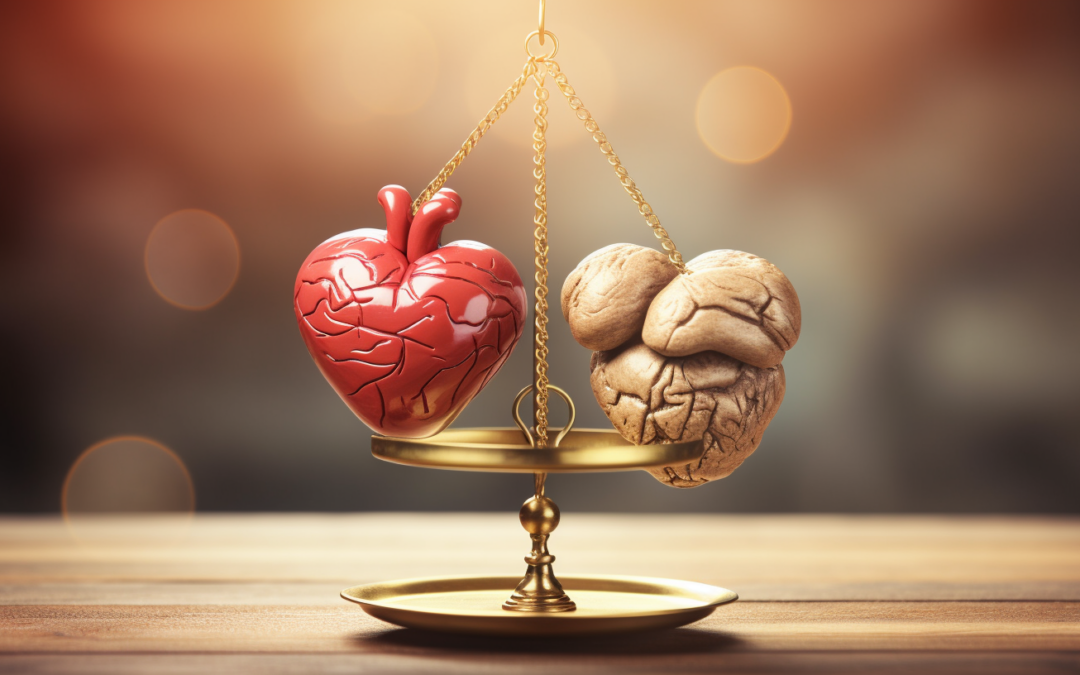In the ever-complex journey of life, we often find ourselves standing at crossroads, pondering over which path to take. Decision-making is an integral part of human existence, and how we arrive at these decisions defines our experiences, our memories, and essentially, our lives. There’s a timeless adage that suggests, “Use your heart for the big decisions and your brain for the small ones.” But why is this advice as profound as it is, and how can it help us navigate life’s myriad challenges?
1. The Heart Holds Our Core Values and Desires:
Big decisions often involve life-changing implications. Choices about marriage, career paths, or relocating to a new country aren’t just about logistics or pros and cons. They’re deeply entwined with our core values, desires, and our vision for life. The heart, often seen as the seat of our emotions, holds these intrinsic values. When making decisions that align with these, we’re more likely to feel fulfilled and content, even if the journey gets tough.
2. Emotional Intelligence Matters:
Emotions aren’t the adversaries of logic. They possess their own kind of intelligence. When we make substantial decisions based on a mix of emotion and logic, we’re harnessing the power of emotional intelligence. This approach helps in understanding not only what we want but also why we want it, leading to more informed, holistic decisions.
3. Small Decisions Benefit from Logic and Precision:
While our life’s grand narratives align with our heart’s desires, the day-to-day workings require precision, logic, and sometimes cold calculation. This is where the brain comes in. Deciding on a budget, planning a day’s itinerary, or choosing a service provider are decisions best made with analytical thinking. The brain excels in comparing, contrasting, and choosing the most logical option from a list.
4. Reducing Decision Fatigue:
If we tried to align every tiny decision with our life’s purpose, we’d be exhausted. ‘Decision fatigue’ is a real phenomenon. By reserving our emotional and introspective energies for the bigger choices and allowing our logical brain to handle the minutiae, we maintain a balance, ensuring neither heart nor brain is overburdened.
5. Ensuring Life Satisfaction:
A life steered solely by logic may lack passion, while a life dictated only by emotion might lack direction. By using our heart for the significant, life-defining decisions and our brain for the day-to-day ones, we strike a balance that can lead to both success and satisfaction.
Conclusion:
Incorporating a harmonious balance between heart and brain doesn’t mean sidelining one for the other; it’s about understanding when to lead with feelings and when to proceed with logic. As Antoine de Saint-Exupéry famously said, “It is only with the heart that one can see rightly; what is essential is invisible to the eye.” It’s about recognizing the invisible, the deeply felt, and the passionately desired while also navigating the visible, practical paths of our journey.

